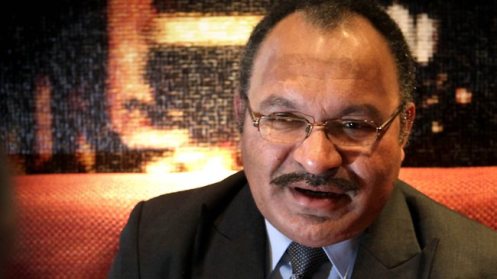
Moale Dina Namona, Ibou mui ai:
My fellow citizens, Residents and Friends of Papua New Guinea.
I extend to you all my sincere greetings and best wishes on this historically special day in our nation’s annual calendar.
It is our National Day today and, as Head of Our Government, I am proud to celebrate our 37th Independence Anniversary with you.
Today, 37 years on, we proudly observe and celebrate the achievement of our nation’s political Independence on 16th September 1975.
In doing so today, I pay the highest tributes to our nation’s Founding Fathers and Mothers who made this dream of building a nation for all of us becoming a reality.
Today I also pay my special tribute and gratitude to our nation’s founding leaders for the gaining of Independence.
I say thank you on your behalf of all citizens young and old – to our nation’s founding Prime Minister Grand Chief Sir Michael Somare for his lengthy active and loyal political leadership service to our country.
I pay tribute also to the other founding fathers, among many, Governor Chief Sir Julius Chan of New Ireland, President Chief John Momis of the Autonomous Region of Bougainville, pioneer woman parliamentarian Dame Josephine Abaijah and Statesman Sir John Kaputin who were among the leading lights of their time.
I pay tribute also to all our former Prime Ministers, Governors-General and Opposition Leaders and many other Leaders for their respective contributions in the evolution of our nation.
These great early leaders of modern Papua New Guinea all did well for our nation, to unite our people and to lay the foundations of a vibrant democracy.
Thank you all.
On this occasion, as Papua New Guineans, we must reflect on where we came from 37 years ago to where we are today and where we are heading as a nation in the years ahead.
We have a growing and evolving nation that is fast asserting itself as an leading developing economy in the Asia Pacific region.
While the industrialized nations face serious economic and financial crises, our nation is respected by many as a growing developing country.
Our national growth has averaged 8 per cent over the past 10 years, and recorded 11 per cent growth in 2011, with forecast for 10 per cent growth this year.
As a nation we have done well but not enough to underpin a sustained quality education, good health and a marked reduction in our key social and poverty indicators.
Everywhere throughout our country we see overwhelming evidence of decline of basic services infrastructures like roads, airports, seaports, hospitals, schools and provincial and district administrative centres.
Law and order management and enforcement has also become ineffective and inefficient in the face of population growth and fast paced development and economic growth.
We have a great deal to do, especially in working together to delivering expected goods and services for our people and for our nation.
I am confident and I believe we can achieve these, if we all work together.
The economic, political and social building blocks, our government has begun putting in place will form the foundations upon which our nation will prosper and grow over the coming years.
Growing and the nation’s future happiness, health and wealth will be achieved through an educated and healthy population, improved modern infrastructures and strengthening the law and order environment.
We can repair, renovate and maintain our existing service infrastructures hand-in-hand with construction of new roads, bridges, hospitals and schools by better prudent management and planning of our resources.
Yes, we can do better and our government is already starting.
We will move swiftly to lifting agriculture development for food security, increase investment and trade opportunities and improve delivery of social services to our people.
Our nation’s success and failures can be measured by many different yardsticks.
I prefer our nation’s success and our government’s leadership performance to be measured and calculated on the basis of our overall failures and our achievements.
We have a good government now in office and we can do better than ever before.
But our critics continue to look at us negatively. They insist on writing our nation off as one without hope and one without a future.
Even though these critics are our own citizens, they continue to look for excuses to talk us down for their own political and selfish gain.
They talk negatively without giving any solutions. This is the kind of politics and leadership that continues let our people and our country down.
Our government does not and will not subscribe to such negative and meaningless views from these doomsayers.
Only leaders without ability, vision and experience will yell and scream. Those who know the job will shut up and get the job done.
As the government, we know our job. We have the most experienced Cabinet since 1975. That is why our government will talk less and deliver more.
There is an old saying in my village which nicely describes loud mouths and non-achievers: “The person who beats his chest and yells the loudest never kills a pig”.
That is what a lot of the critics of our government and our nation are good for.
I see us as a nation of people that has moved along in leaps and bounds in 37 years, sometimes not so smoothly, but slowly moving in the right direction towards prosperity.
We have advanced as a nation with some successes, many failures and some missed opportunities in all aspects of our nation’s development.
I see us as a nation of people that can do better for ourselves in terms of lifting our own and our nation’s economic, political and social development.
Our government is government of inclusiveness, reconciliation and strong leadership that is capable of producing productively for our people and our nation.
We are a government that is committed to making positive changes that will improve the lives of all our people.
We can only look at our nation’s past failures as painful lessons that must not be repeated.
We must pick up the broken pieces left along the way in the last 37 years and reconstruct them.
We must do better by building a brighter future.
We must also embrace the missed opportunities of the past and use that experience to making sure that gainful opportunities must never again slip through our fingers.
An important aspect of our nation’s progress, that we all must accept and celebrate in the 37th year of our National Independence, is the celebration and recognition of our women’s rightful place as equal partners in nation building.
The election of three women leaders to Parliament is an extremely welcome development and a step forward for all our female population.
My own election as Prime Minister further sees the change of leadership guard from our founding fathers to the next generation of leaders.
Yes, our people have a new sense of hope for our country and their family under the new leadership.
Our government also has high hopes for the delivery of best possible results for our national development and for our people’s wellbeing.
Our people and the international community all say we have one of the naturally wealthiest nations on earth.
We have a population that is ethnically and culturally diverse, yet we have remained tolerant and resilient in the face of economic and social adversity over the last 37 years.
That is very true. But the fact still remains that our people remain largely poor in a wealthy nation.
Under the watch of our government, we are starting to make positive changes to bring about outcomes that transform our people’s lives to one that will make them economically and socially better off.
As I have stated many times money, is not our nation’s problem, rather money has always been wasted on the wrong priorities.
We cannot go wrong unless leadership at the political and public service levels is totally incompetent.
As government we have laid out a simple and achievable plan as building blocks for our nation’s development now and in the years ahead. These building blocks are:
- We must educate our people;
- We must provide better healthcare for our people;
- We must provide better security for our people;
- We must provide better infrastructure – roads, bridges, wharves – to build our economy; and;
- We must manage our economy better.
We can do all these together, better than ever before.
Our government will not tolerate slackness, corruption and excuses for not delivering on the commitments our people expect us to deliver.
Within the first three months of this government, any person – both in politics and public service – that is not willing to live up to these commitments will have no place in our people’s government.
Our government is realistic enough to understand and we commit ourselves to providing inclusive, transformational and participatory leadership that is zero-tolerant against corruption at all levels in our country.
We have activated the National Task Force Against Corruption to begin the process of amalgamation of all state agencies involved in anti-corruption operations.
Task Force Sweep will continue playing its role as our government moves forward to also establish the Independence Commission against Corruption.
Also more importantly, our government is serious about growing our nation’s future through prudent and stable economic and political management.
That has begun with the delivery of free education for all our children, free basic healthcare to all people, improved infrastructure which include roads, highways, seaports and airports and better telecommunication and energy supply systems to be delivered efficiently under our Public Private Partnership arrangements.
Our government has no time to waste. We are now working on financial options to deliver our programs within the legal and financial framework of our country.
All the transactions that commit our nation’s future will be done with the highest degree of transparency.
Our government is passionate and committed to involving all capable citizens in the development of our nation.
Together in unity, together in ownership and together in participation, we can transform our nation into one whose population is educated, living improved and happy lives and participating in personal and national wealth creation.
As head of your government, I am confident that we can achieve greater prosperity for our country and for our people.
And all our dream is for every man, woman and child to become educated, to become free from the chains of poverty, to becoming happier and healthier with better opportunities for better life.
I had that dream when I was growing up in my village many years ago. Many had that dream when they were growing up in the villages across the Nation.
We all had that dream 37 years ago.
Let us make the dream a reality together.
I wish all our people and all our friends, a very Happy and Memorable 37th Independence Anniversary.
Tanikiu Bada Herea, Ibou mui ai.
Posted in PNG Politics
Tags: Independence, Papua New Guinea, Peter O'Neill, PNG, Speech
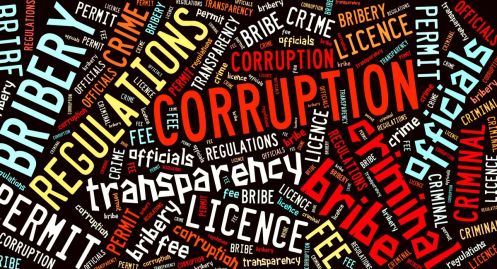

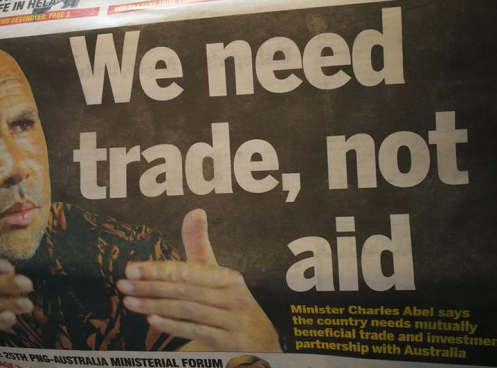

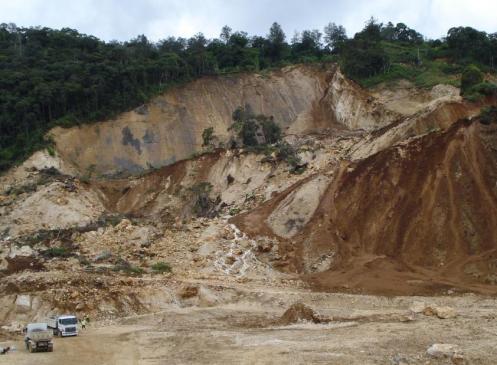


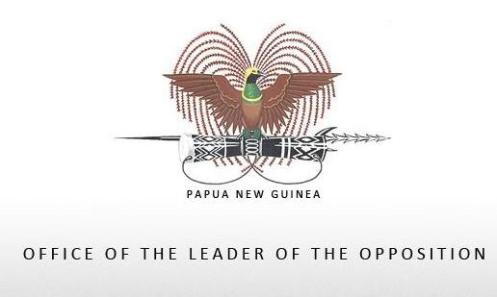
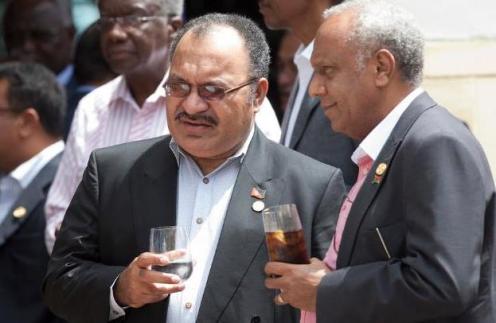
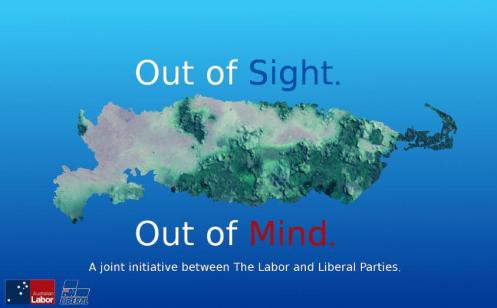







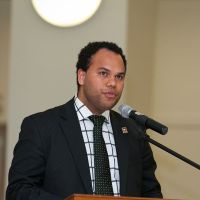




Your Comments